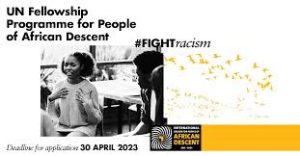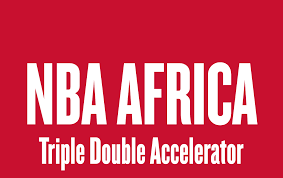Russell E. Train Fellowships support individuals pursuing a master’s or doctoral degree in conservation and related fields. Each year, WWF supports committed conservation leaders and scientists from target countries to receive financial support for their studies and research.
To strengthen local capacity in Asia, Africa, and Latin America and Caribbean, WWF’s Russell E. Train Education for Nature Program (EFN) seeks to support current and aspiring faculty members to pursue PhD degrees in-country, regionally, or globally. The objective of this competitive fellowship is to advance the development of a critical mass of outstanding and well-trained experts, natural and social scientists, and practitioners who will continue to increase the learning, research, and engagement in conservation science and leadership.
The fellowship is open to nationals of eligible countries within the WWF-US priority areas: Belize, Brazil, Bhutan, Bolivia, Cambodia, Cameroon, Central African Republic, Chile, Colombia, Dem. Republic of Congo, Ecuador, French Guiana, Gabon, Guyana, Honduras, Indonesia, Kenya, Laos, Madagascar, Malaysia, Mozambique, Myanmar, Namibia, Nepal, Paraguay; Peru, Republic of Congo, Suriname, Tanzania, Uganda, Vietnam who already enrolled/are interested in enrolling in a PhD program.
WWF’s Russell E. Train Education for Nature Program (EFN) provides funding support to current and aspiring university faculty that
are affiliated with or currently employed at African, Asian, and Latin American and Caribbean universities. This opportunity is for
doctoral degree study in natural and social science and other conservation-related fields. Strong university faculty is fundamental
for effective exchange of knowledge, expertise and skills, and leadership. Faculty members inspire and mentor students, design
curricula, promote learning and idea sharing, lead and collaborate on research, and disseminate scientific outcomes.
WWF Train Fellows must enhance, expand, or support the development of intergenerational scientific expertise at a university in
their home country or region. In doing so, WWF aims to improve the capacity of local and regional faculty to activate the training of
current and future conservation leaders, leading to more equitable and accessible conservation science and leadership capacities
for the benefit of people and nature. Applicants may apply for up to two years of funding and request up to $30,000 per year. The
amount of funding will vary. Accepted applicants will be notified by early May 2023.
ELIGIBILITY CRITERIA
Applicants must meet all of the following criteria to be eligible.
- You must be a citizen and legal permanent resident of an eligible country.
- You must have at least two years of conservation-related work or research experience.
- You must have an existing affiliation with a college or university in an eligible country and demonstrate collaboration and strategic partnership with country and/or regional institutions. Priority will be given to individuals affiliated with underserved universities.
- You must have a demonstrated commitment to working in academia in an eligible country; Commitment to providing targeted mentorship and guidance to early career conservation leaders and scientists.
- You must be enrolled in or admitted to a PhD program anywhere in the world
- You must plan to begin your studies no later than January 2024.
- You must contact EFN if you are a WWF employee, consultant, or previous EFN grant recipient to determine eligibility.
- You must submit all required documents by the application deadline (February 1, 2023).
METHOD OF APPLICATION
- Applicants can access the online application and guidelines at www.worldwildlife.org/efn.
- Applicants may apply in English, Spanish, French, or Portuguese. The application deadline is February 1, 2023 by 11:59 ET.
Application Deadline: February 1, 2023 by 11:59 ET.
For More Information:





